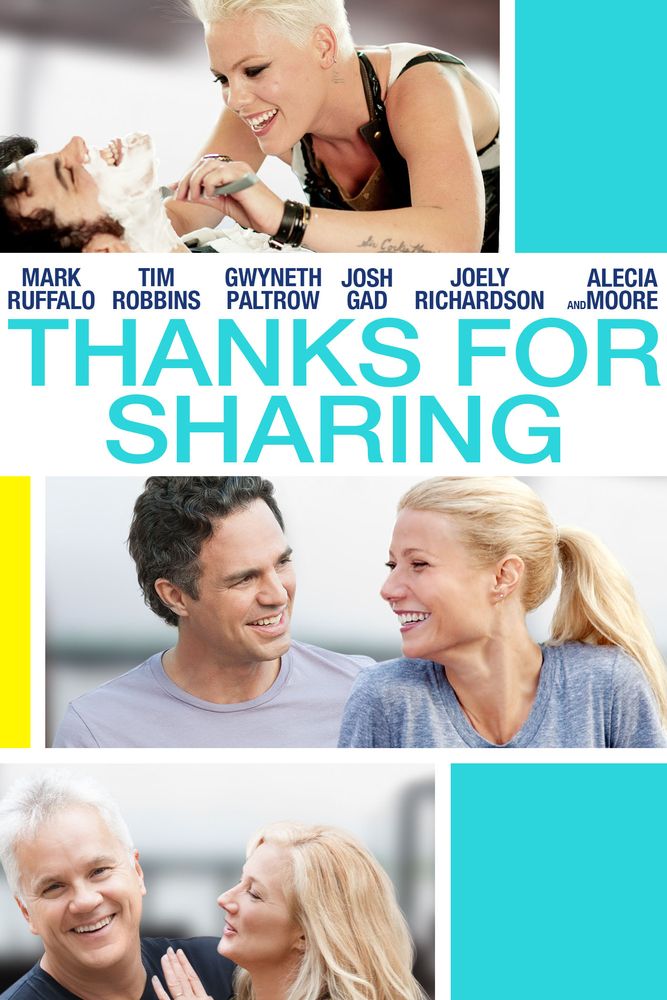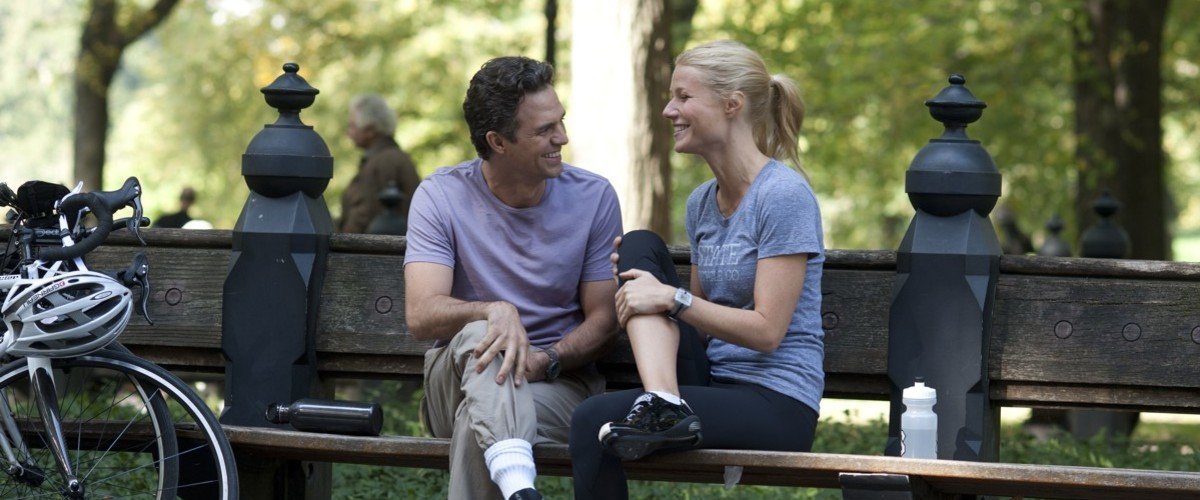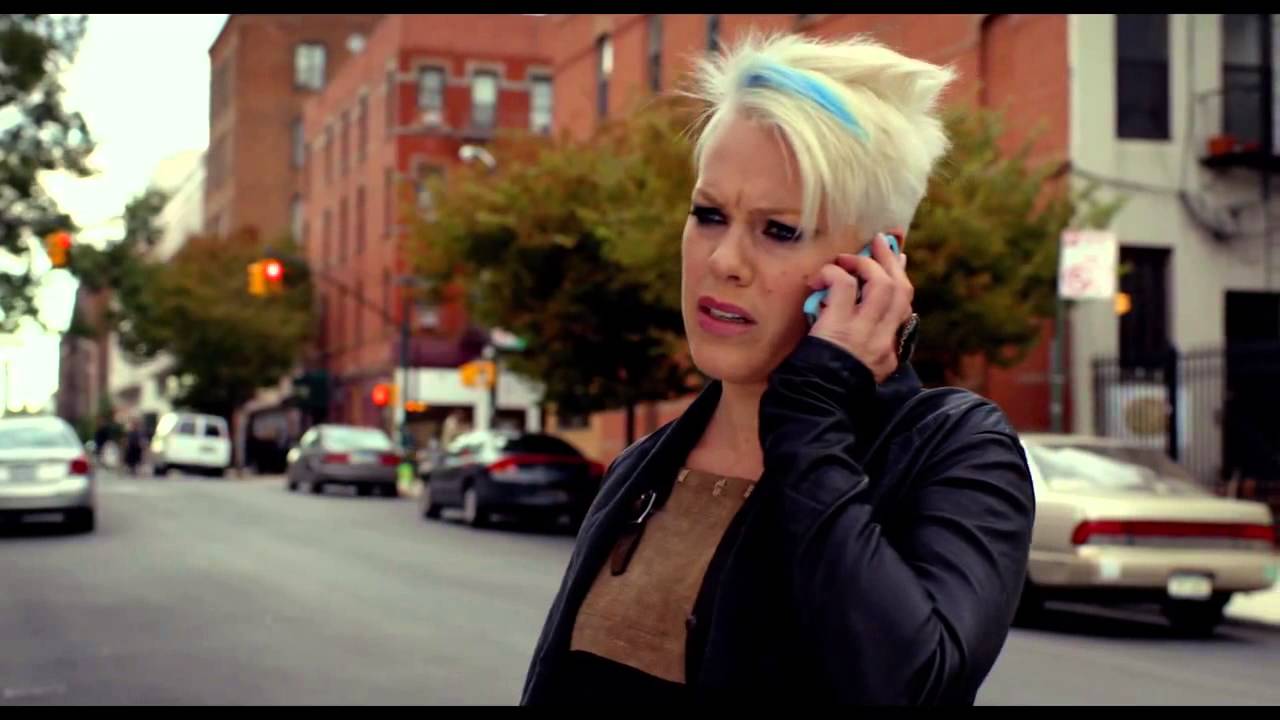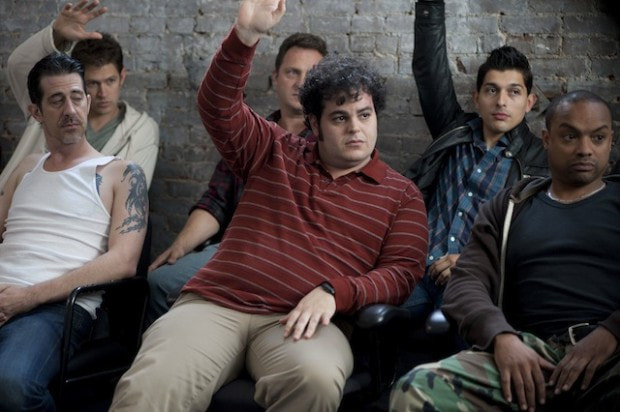|
Neil (Josh Gad) is new to the support group and doesn’t take it seriously enough. He needs to go a bit further towards rock bottom before his real recovery can begin. Adam (Mark Ruffalo) is 5 years sober but his even keel is rocked by a new relationship. Mike (Tim Robbins) has many more years of sobriety and is a father figure to many. But he faces trouble when his actual adult son Danny (Patrick Fugit) returns home after a stint in prison and a history of drug and alcohol abuse. Each character faces their own struggles and needs help from the others in different ways. By the end none of them are healed, after all recovery is a life-long process. But they are changed and have grown. This film is endearingly sincere and takes the subject of addiction seriously, refusing to turn it into a sex comedy. It manages to touch on different kinds of addiction including addiction to exercise and disordered eating. Perhaps it’s a bit much that every single character is addicted to something, but it does help it to become a film about addiction not sex. Preconceptions around sex addiction are addressed directly; it’s not just an excuse people make when they’re caught cheating, it’s a disease. It’s an unhealthy coping mechanism. The lack of consequences for some of their behaviours, particularly for Neil, is very disappointing. He grinds against a woman on the subway and upskirts his boss. And although he does get swift retribution both times there is zero examination of the effects on the victims. Neil now has the hassle of cycling instead of taking the subway and he struggles to hide the fact that he lost his beloved job. But he doesn’t appear to learn anything about the human impact on the victims. The law is only now starting to catch up with upskirting as a serious sexual violation, and countless women have personal stories about being groped or grinded on in public. So to not include any exploration of these women’s experiences is a shameful missed opportunity. Other characters do get moments of reflection where they consider past behaviour. These are filled with enough regret to be sincere and for us to believe that they understand the consequences of their actions. Although the effects on others aren’t exactly dwelled upon here either. It is good that there is a woman in the support group and she’s not just a two dimensional nymphomaniac for other people’s pleasure. Dede (Pink) uses sex as a coping mechanism and struggles to maintain healthy relationships. She has her own crisis moment while supporting Neil through his. So although she is more of a minor character her inclusion is still very important to the message of the film. Of the other women in the film Phoebe (Gwyneth Paltrow) has the biggest role. She is Adam’s new girlfriend with an unspecified eating and exercise disorder. While she is used mainly to further Adam’s journey and doesn’t exactly have an arc of her own, she does at least have complicated issues which motivate her otherwise cold-hearted actions. Phoebe illustrates how hard it can be for someone to deal with another person’s issues as well as your own. While not being especially serious in tone, and only featuring heterosexual people “Thanks For Sharing” addresses some big topics and will have us come away feeling encouraged. There is hope for people with all kinds of addictions. So while some behaviours are woefully under-examined the rest of the film manages to be carefully thought through and solidly acted enough to make an impression. Comments are closed.
|
AuthorHi, I'm Caz. I live in Edinburgh and I watch a lot of films. My reviews focus mainly on women in film - female directors or how women are represented on screen. Archives
December 2021
Categories
All
|







 RSS Feed
RSS Feed
